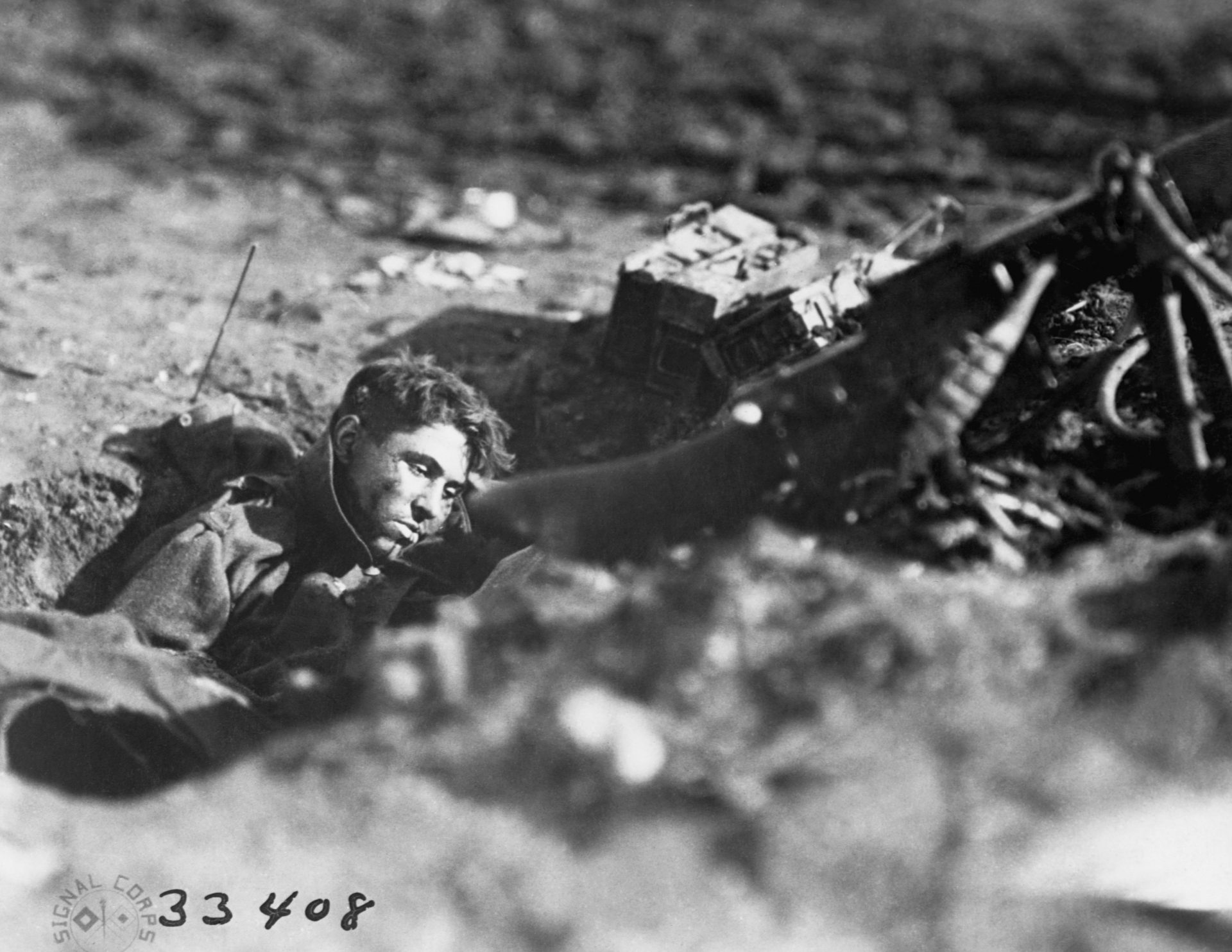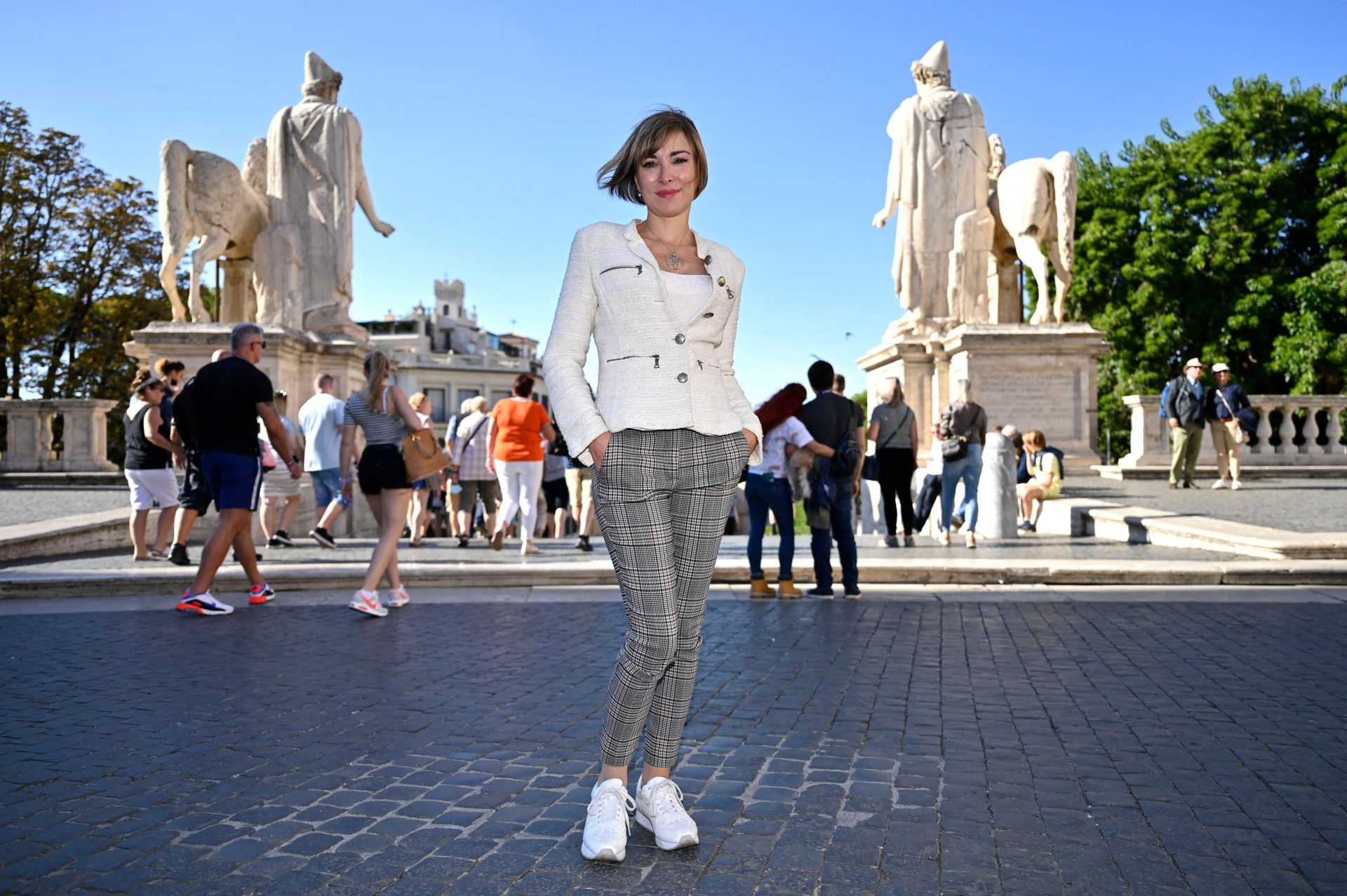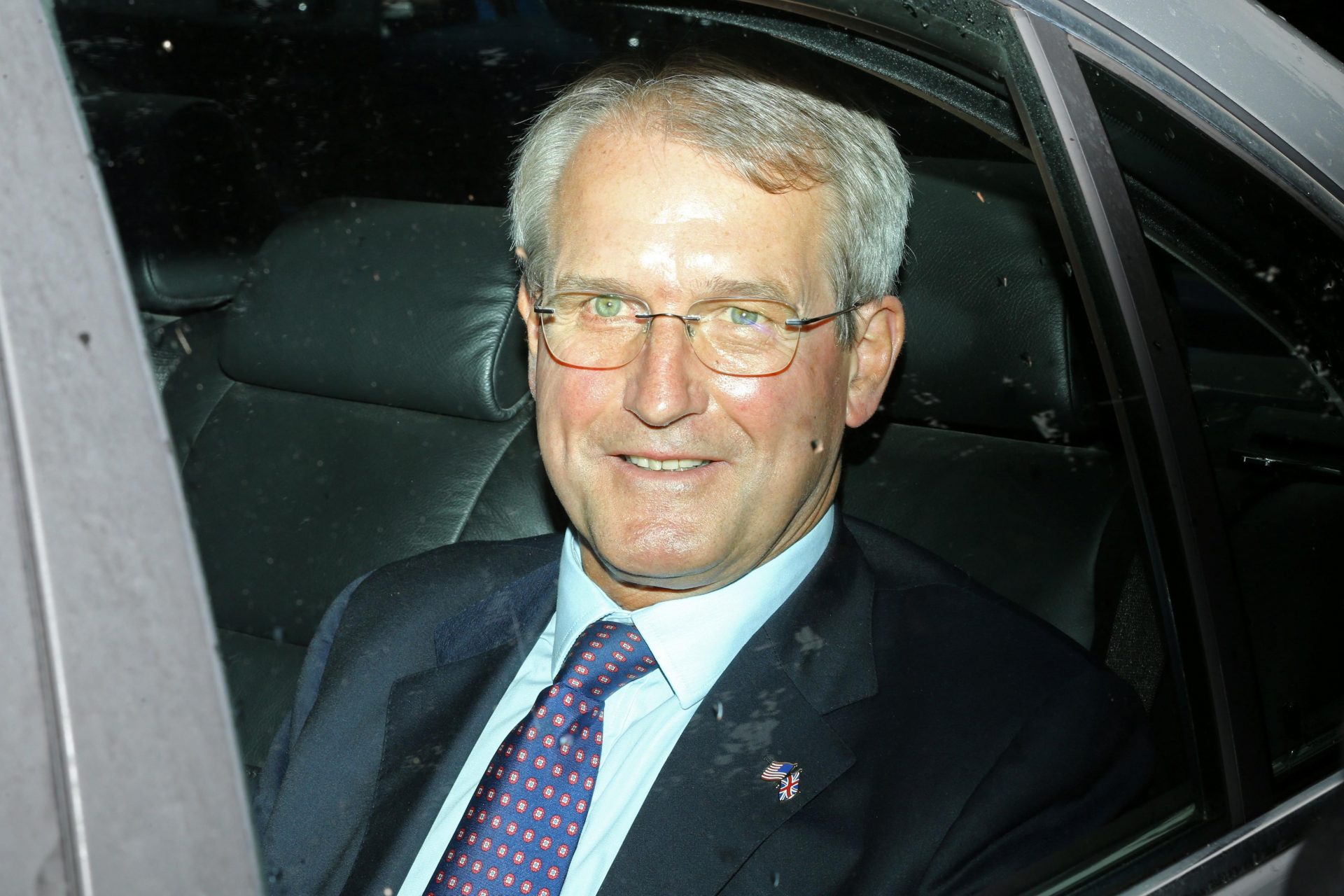This year sees the centenary of the Royal British Legion. It’s through the work of the Legion and other organisations that the sacrifices made by those who served in the First World War are remembered. But there is one group of servicemen whose experiences have not tended to be part of the mainstream narrative of the war.
A total of about 70 million people were mobilised on all sides during a conflict which lasted the best part of 52 months. As many as 19 million are thought to have died, with a further 21 million injured: limbs lost, faces horribly disfigured, some blinded. Then there were those suffering shell-shock – which we now call Post Traumatic Stress Disorder.
By the law of averages – even if only 2% of people are homosexual, and not the one in 10 that some have suggested – that means an awful lot of gay men fought and died.
They fought on all sides, far from home and in places many of them could never have expected to see or even have heard of. They must have fought in the early battles such as Le Cateau, Mons and on the Marne, and at later bloodbaths on the Somme, at Ypres and on the killing fields of Verdun.
They served on ships at Jutland, on the beaches at Gallipoli and on the sands of Sinai and Palestine. And all the while they kept their secrets as comrades talked about their wives and sweethearts back home.
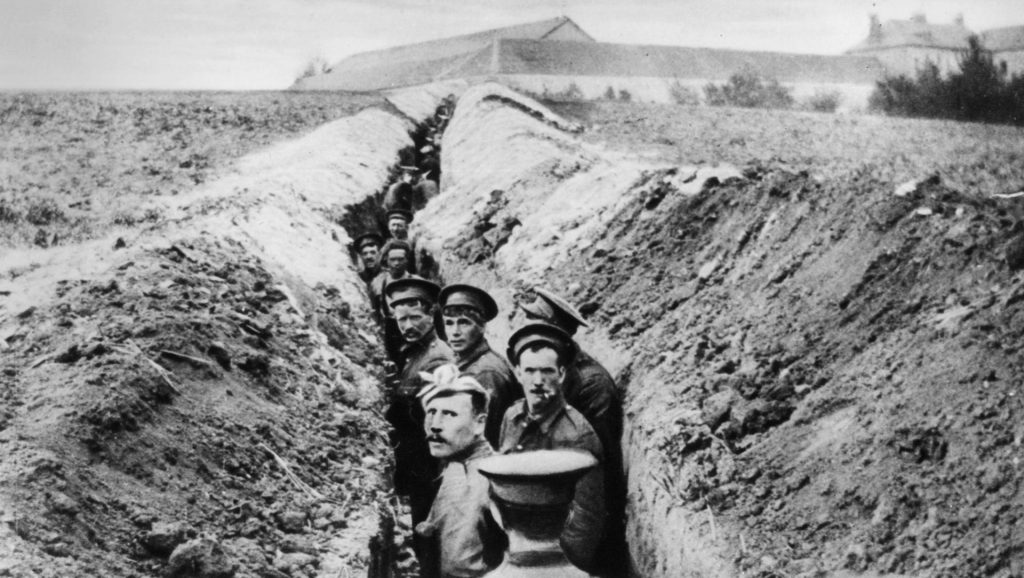
Some historians have suggested that the Great War helped to spark the modern gay rights movement. Laurie Marhoefer, an assistant professor of history at the University of Washington, has said: “Gay soldiers who survived the blood-letting returned home convinced their governments owed them something – full citizenship.”
In Weimar Germany, she added, organisations including the German League for Human Rights, which had about 100,000 members, called for some sort of gay equality.
But the truth of the matter is that most of those who survived the conflict faced the same old hatreds once they returned home. In the UK, they remained outlaws for another 50 years, while those high hopes in Germany were dashed by the rise of the Nazis.
The subject, then, has seldom had much attention. For too long, too many of these gay soldiers never had their stories fully told – almost as if they, or at least their sexuality – had been erased from history.
Although it was not actually prohibited by British army regulations – that didn’t happen until 1955 – homosexuality was illegal throughout the UK so most gay soldiers kept their sexuality hidden.
As the casualties mounted, there was a growing emphasis on men ‘doing their duty’ by having more children to bolster the male population, and compensate for those dying. Being gay, therefore, was not only illegal but also unpatriotic.
That said, homosexuality activity was “not exactly unknown” in the British army, according to historian A.D. Harvey.
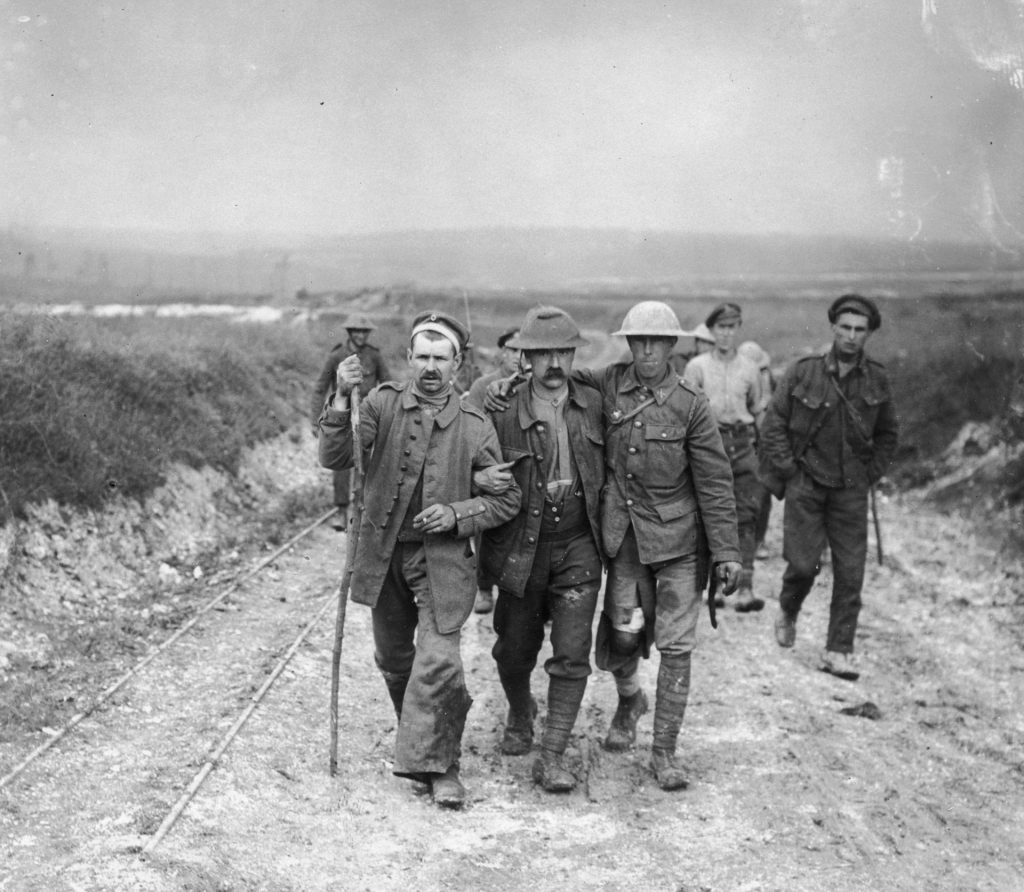
War poets Wilfred Owen – who died near the end of the war and is famous for works such as Anthem for Doomed Youth and Dulce et Decorum Est – and Siegfried Sassoon, who survived the war and whose poems include Suicide in the Trenches and Aftermath, were both gay, although it was not public knowledge at the time.
Shortly before his death, Owen sent a letter to a cousin, describing meeting two French girls who were attracted to him, causing jealousy among other officers. “The dramatic irony was too killing, considering certain other things, not possible to tell in a letter,” the poet wrote cryptically.
He was killed in action on November 4, 1918 and is buried in northern France. His mother received the telegram notifying her of his death a week later as church bells rang to mark the signing of the armistice.
Another war poet, Rupert Brooke, once called the most handsome young man in England, is said to have described himself as one half outright heterosexual, one quarter outright homosexual and one quarter “sentimental homosexual”.
Brooke, best known for The Soldier (“If I should die, think only this of me: That there’s some corner of a foreign field That is for ever England”) died of blood poisoning on a hospital ship, moored as part of the force attacking Gallipoli in 1915. He is buried in his corner of a foreign field: Skyros, in Greece.
Gay servicemen who were open about their sexuality were often ostracised and reported to their superior officers for ‘indecency’. At least 230 fighting men were court-martialled and sent to prison for various homosexual offences.
Others were tried and convicted in civilian courts. As historian A.D. Harvey wrote, Lieutenant Wilfrid Marsden, of the Royal Flying Corps – soon to become the RAF – appeared at the Old Bailey in London in January 1916 and was sentenced to two years hard labour. A letter from a fellow officer, F.R. West, was found in his possession, detailing a liaison with another man.
West was court-martialled and thrown out of the armed services.
At least two other gay men had been sentenced to hard labour in the spring of 1915. Frederic Llewellyn had fought in the Boer War at the beginning of the 20th century before leaving the army. He then signed up again when war was declared in 1914. At the time of his arrest he was second in command of the 8th Battalion, the Oxford and Buckinghamshire Light Infantry. He was tried and convicted on six counts of indecency. Meanwhile, Alfred Boyd, a lieutenant in the Territorials, was found guilty on nine charges.
Many gay servicemen were tormented by what they thought was a sickness or a vice and saw the war as a way to rid themselves of it. Stephen Bourne, the author of Fighting Proud, tells the story of Edward Brittain, a soldier from Macclesfield, who earned the Military Cross for his gallantry during the Battle of the Somme in 1916.
Brittain was killed in 1918 at the Battle of the Piave River, in northern Italy. Long after the war his sister revealed that the day before he died, her brother had been accused of homosexual activity, following the opening of a letter of his by the censor. Historian Mark Bostridge has unearthed evidence suggesting Brittain walked into enemy gunfire as a form of suicide. His sister was the writer Vera Brittain (and mother of former MP Shirley Williams) and later immortalised her brother in her memoir, Testament of Youth.
A story with a happier ending concerns architect and photographer Montague Glover, another recipient of the Military Cross. Born into the middle classes he was known to have had affairs with rent boys and young men from the supposedly lower classes – labourers, road-builders, dockers – in itself somewhat shocking for the time. But he met Ralph Hall in the 1930s and they went on live together for 50 years until Monty’s death in 1983.
When Ralph died four years later, Monty’s ‘gay family album’ was discovered. It was packed with love letters, photos of their time together and snaps of other men dressed in army uniforms.
And while serving in Egypt celebrated author-to-be E.M. Forster had a three-year relationship with a young local, Mohammed el Adl. It ended in 1918 when Mohammed was forced to marry, but he never forgot his friend and named his son after his former lover.
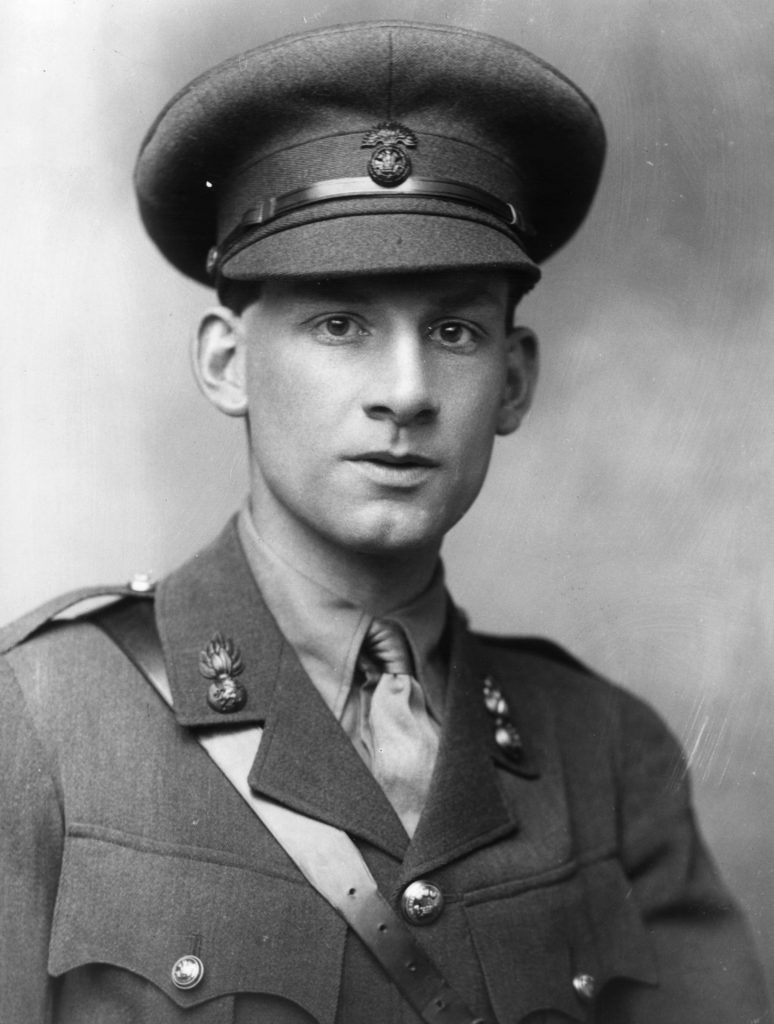
George C Beresford. Photo: George C Beresford/Hulton Archive/Getty Images.
After his death in 1922, Mohammed’s widow sent Forster her husband’s gold ring as a keepsake. Legend has it that the author of the gay romance Maurice slept with it under his pillow every night.
One gay man who had a particularly eventful war was the future playwright and journalist Joseph Randall Ackerley. He was wounded on the first day of the Somme – the bloodiest day in British military history – when he was shot in the arm and an explosion meant shards of a whisky bottle became imbedded in his side. After six hours in a shell-hole, he was rescued.
After recuperating in England he volunteered to return to the front where, in May 1917, he was wounded once again, while leading an attack at Arras. Stranded in no-man’s land for a second time, on this occasion he was found by the Germans and taken prisoner.
He was sent to an internment camp in neutral Switzerland, where he began work on his outspokenly pro-gay play The Prisoners of War, which expresses the cabin fever of captivity and his frustrated longings for a fellow prisoner.
Ackerley was to become one of the first high-profile gay personalities and, in 1942, spoke out against the unfair treatment of homosexuals. “I think that life is so important and, in its workings, so upsetting, that nobody should be spared, but that it should be rammed down their throats from morning to night,” he wrote. “And may those who cannot take it die of it; it is what we want.”
The experiences of gay men in other armies seem to have been just as poignant. A Russian historian has uncovered a letter sent by a petty officer to a psychiatrist in which he describes his attraction to other men he served with, his exhaustion from living a “strange life” and his desire to die on the battlefield, fighting against Germany.
The letter goes on to say: “At 15, I was working as a shop assistant and the owner [showed] me a collection of pornographic cards. After some time, I started experiencing attraction toward men, trying to seduce them, not understanding this terrible vice. Of course, I did this with great caution.
“Then war was declared and I was mobilised. My experiences at the front made me forget my rotten past but when I became a hero and was awarded the St George’s medal, I was ashamed, remembering my base and vile private life.
“Then I was wounded in a German trench. After two operations, I begged for death but life came back to me; my body didn’t quit.”
Another letter, this time found on a German soldier who died in a Russian field hospital in the winter of 1915 after being hit by shrapnel, is just as heartbreaking. As recounted by the historian Laurie Marhoefer in an earlier article, the document had been written to the soldier’s boyfriend – identified only as S – and described how the writer “craved a mouthful of decent water, of which there isn’t any here”. The letter concludes: “There is nothing to read, please send newspapers. But, above all, write very soon.”
As Marhoefer wrote, that boyfriend had had to watch the man he loved go off to war, only to die alone and in pain, while S himself sat hundreds of miles away, unable to help or comfort him. It was later discovered that S’s replies never got through to his lover, lost in the chaos of war.
All in all, gay men fought – like their heterosexual counterparts – some gallantly, some less so. And – like their heterosexual counterparts – many were killed. Yet, it is worth remembering the ways in which their wartime experience would have differed: how, in the trenches and in the warships, amid the suffering and the boredom of military service, they had to keep a part of themselves in secret and in silence. And how they faced hostility not only from the enemy, but their own side. For instance, officers who were found guilty of indecency and tried to re-enlist as common soldiers were referred to as “the Dirty Brigade”.
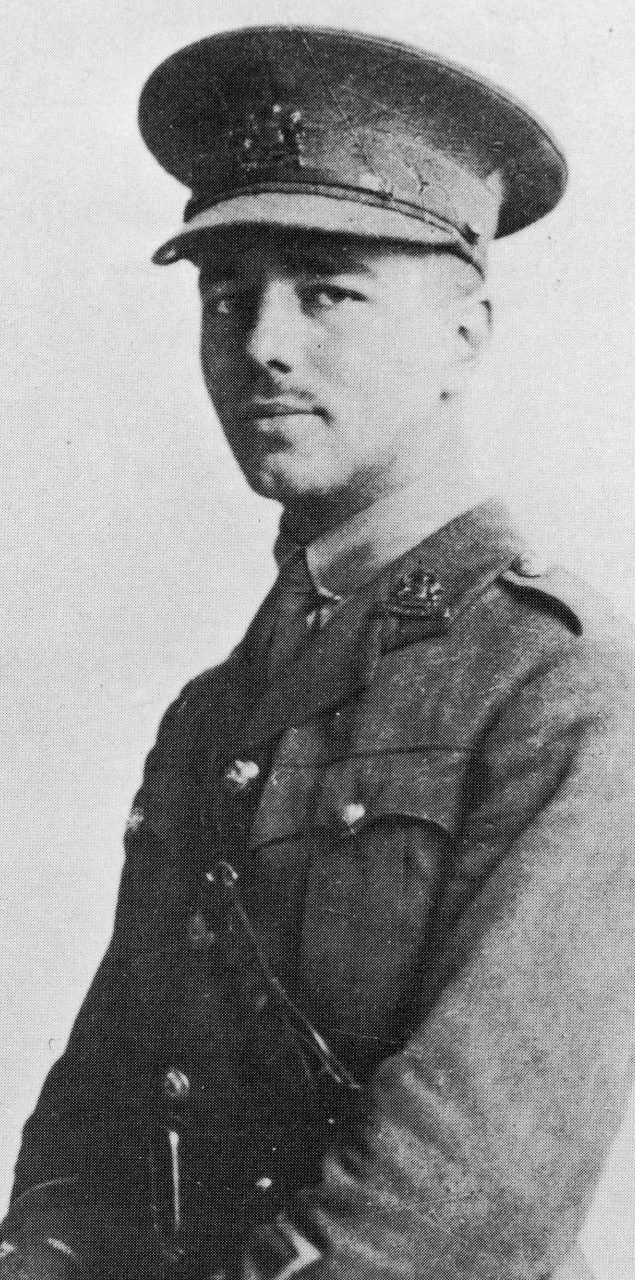
How they were thought of may best be summed up in John Buchan’s 1916 novel Greemantle, a sort-of follow-up to the more famous The 39 Steps, when the hero sees the quarters of a German officer: “At first sight, you would have said it was a woman’s drawing room. But it wasn’t… I soon saw the difference… the queer other side to my host, that evil side that gossip had spoken of, not unknown in the German army.”
Yet for all the disgust felt by the army hierarchy, it was whispered in high circles that even the secretary of state for war, Field Marshal Lord Kitchener – the one in the famous poster with his finger pointing out and the words ‘”Your Country Needs You” – was having a love affair of his own with his military secretary Lieutenant-Colonel Oswald Fitzgerald…
- This article is based on a version of the story which appears on attitude.co.uk

